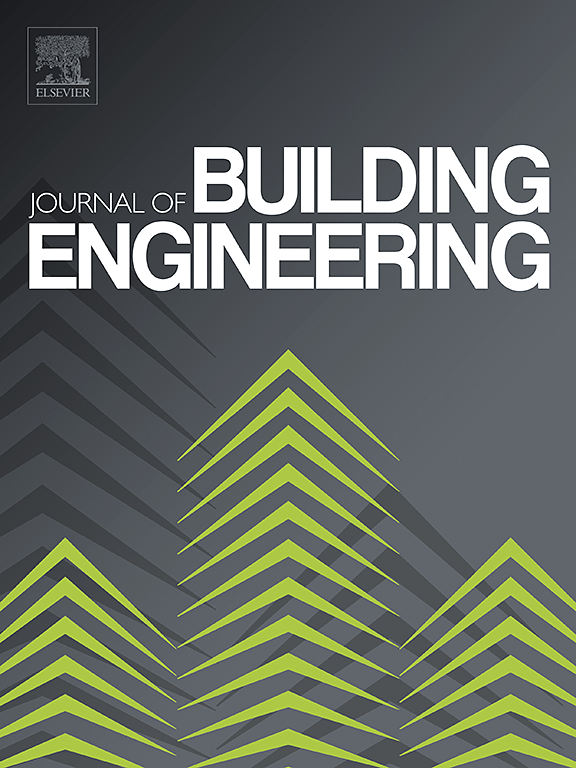预测冷弯型钢墙体耐火时间的机器学习框架
IF 7.4
2区 工程技术
Q1 CONSTRUCTION & BUILDING TECHNOLOGY
引用次数: 0
摘要
本研究提出了一个机器学习(ML)框架,用于准确预测ISO 834火灾条件下冷弯型钢(CFS)墙体的耐火时间。关于CFS墙体耐火时间的实验结果,文献中仅报道了32个。为了解决这一问题,建立了有限元传热模型,并与实验测试结果进行了验证。利用验证的模型和荷载比-热法兰临界温度曲线,共编制了592个数点,构建了CFS墙体数据集。研究了不同的壁型、护墙板类型和厚度对其性能的影响。使用了不同的机器学习模型,包括人工神经网络、极限学习机、卷积神经网络和极限梯度增强(XGBoost)。结果表明,XGBoost能够准确预测CFS墙体的耐火时间,R2和MAE值分别为0.986和2.287。XGBoost预测得到的耐火时间与实验测试结果的平均比值为1.004,标准差为0.047。最后,使用SHapley Additive exPlanations方法对XGBoost预测进行解释,以确定输入特征的显著性。本研究提出的基于ml的框架为研究人员和工程师在火灾条件下高效、有效地设计CFS墙体提供了一种有希望的选择。本文章由计算机程序翻译,如有差异,请以英文原文为准。
A machine learning framework for predicting the fire resistance time of cold-formed steel walls
This study proposes a machine learning (ML) framework for accurately predicting the fire resistance time of cold-formed steel (CFS) walls under ISO 834 fire conditions. Only 32 experimental results regarding the fire resistance time of CFS walls were reported in the literature. To address this issue, a finite element heat-transfer model was developed and validated against the experimental test results. Using the validated models and the load ratio-hot flange critical temperature curve, a total of 592 data points were compiled to construct the dataset of CFS walls. The effects of various wall configurations, sheathing board types and thicknesses were investigated. Different ML models were used, comprising Artificial Neural Network, Extreme Learning Machine, Convolutional Neural Network and eXtreme Gradient Boosting (XGBoost). The results suggest that XGBoost can accurately predict the fire resistance time of CFS walls, and R2 and MAE values were 0.986 and 2.287, respectively. The mean ratio of the fire resistance time obtained from the XGBoost prediction to the experimental test results was 1.004, with a corresponding standard deviation of 0.047. Finally, the XGBoost prediction was interpreted by the SHapley Additive exPlanations method to determine the significance of input features. The ML-based framework proposed in this study can offer a promising alternative for researchers and engineers to efficiently and effectively design the CFS walls under fire conditions.
求助全文
通过发布文献求助,成功后即可免费获取论文全文。
去求助
来源期刊

Journal of building engineering
Engineering-Civil and Structural Engineering
CiteScore
10.00
自引率
12.50%
发文量
1901
审稿时长
35 days
期刊介绍:
The Journal of Building Engineering is an interdisciplinary journal that covers all aspects of science and technology concerned with the whole life cycle of the built environment; from the design phase through to construction, operation, performance, maintenance and its deterioration.
 求助内容:
求助内容: 应助结果提醒方式:
应助结果提醒方式:


